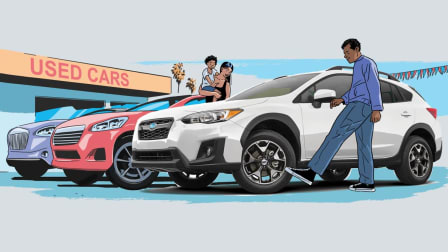Tesla Recalls Model S and Model X for Power Steering Problem After Software Update
The automaker says the problem can be fixed with another over-the-air software update

Tesla has recalled over 40,000 Model S sedans and Model X SUVs from the 2017 through 2021 model years because the electronic power steering may suddenly stop working on rough roads or after hitting a pothole.
If drivers lose power steering assistance, they may suddenly need to use more effort to turn the vehicle, which could lead to a crash. In addition, the car will issue audio and visual warnings to let drivers know the electronic power assist steering system (EPAS) isn’t working.
The Details
Vehicles recalled: Some Tesla Model S sedans manufactured between Aug. 16, 2017, and Dec. 28, 2020, and some Tesla Model X SUVs manufactured between Aug. 20, 2017, and Dec. 27, 2020.
The problem: A software update erroneously caused the electronic power steering system to recognize potholes and rough road surfaces as steering inputs. As a result, the power steering system may suddenly stop working.
The fix: A follow-up software update reversed the changes made by the initial software update.
How to contact the manufacturer: Tesla says it has already fixed the problem using an over-the-air update and will notify owners of the recall by mail starting Dec. 31, 2022. Owners may also contact Tesla at 877-798-3752.
NHTSA campaign number: 22V818. Tesla’s own number for this recall is SB-22-00-014.
Check to see whether your vehicle has an open recall: NHTSA’s website will tell you whether your vehicle has any open recalls that need to be addressed.
If you plug your car’s 17-digit vehicle identification number (VIN) into NHTSA’s website and a recall doesn’t appear, it means your vehicle doesn’t currently have one. Because automakers issue recalls often, and for many older vehicles, we recommend checking back regularly.
Stay informed about recalls that might affect your vehicle by using our Car Recall Tracker. Create a free account now to become a CR member.




